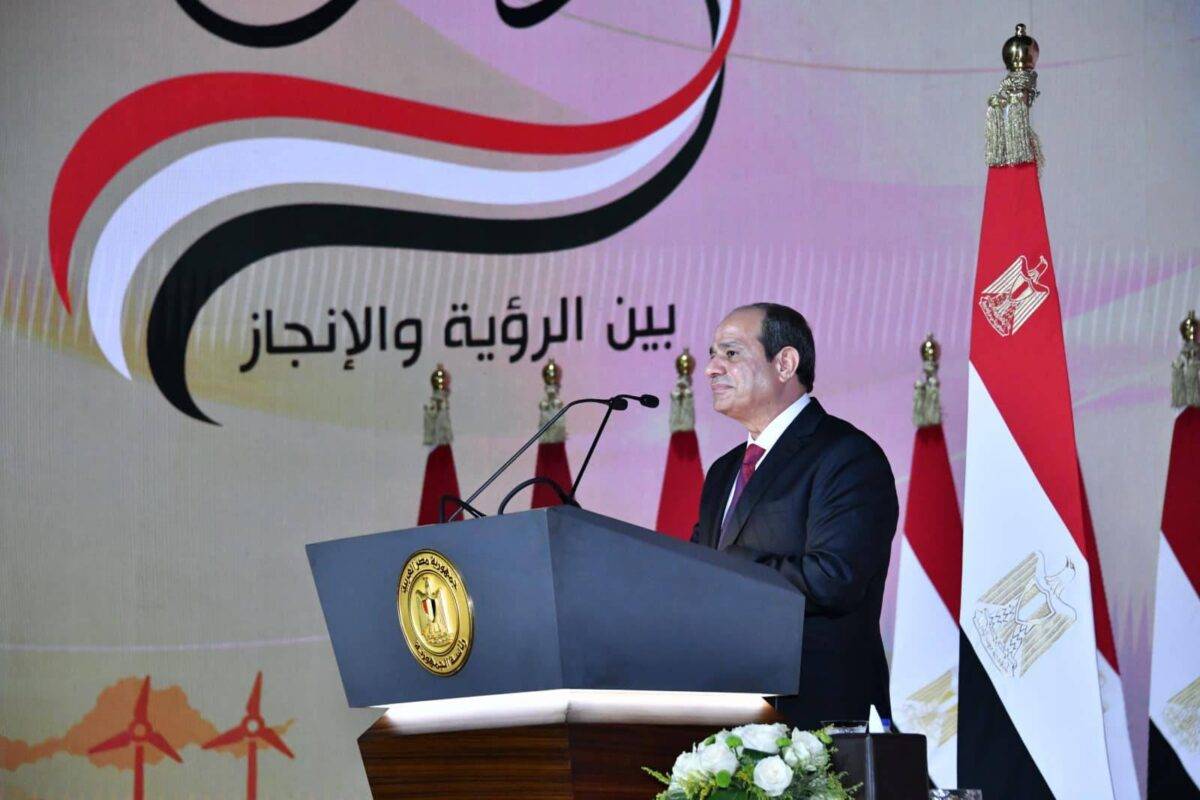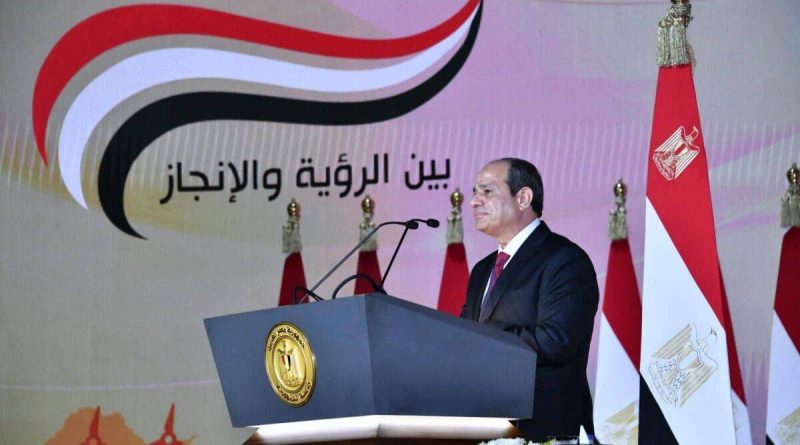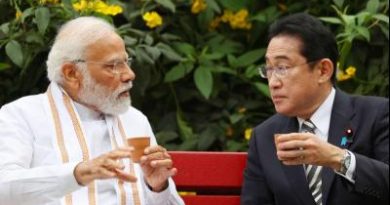Re: Al-Sisi’s stark warning to Egyptian voters: it’s either me or chaos

Egyptian law requires each presidential candidate to collect a recommendation from 20 representatives in parliament, or certified letters of support from 25,000 citizens from at least 15 Egyptian governorates, with a minimum of 1,000 from each governorate. It is not possible to support more than one candidate. You can spend hours in a long queue to have your letter of support certified to back a potential candidate in the Egyptian presidential election scheduled for 10 December. While waiting, you may be subjected to security and bureaucratic harassment, and may still not actually get the official certification.
This situation is repeated day after day by supporters of former parliamentarian Ahmed Tantawi. He decided last week to suspend his election campaign — which has 22,000 volunteers — for 48 hours in protest against the “certified letter war” and prevented his supporters from entering land registry offices to have their letters certified.
Tantawi is 44 years old, and was previously head of the Dignity Party. “The land registry offices in all governorates only allowed me to issue two letters of support due to a security ban and siege against our campaign, and the relevant authorities not allowing the issuance of any letters of support,” explained Tantawi on social media last week.
Al-Sisi’s political opponents have taken to social media to complain about being harassed by thugs in front of the certification offices, and claims from employees that the system is intended to hinder or prevent the collection of enough support letters to stand as a candidate in the presidential election.
READ: Sisi confirms running in Egypt vote, opposition say facing obstacles
The general gloom about this was exacerbated by the number of Tantawi’s supporters who have been arrested. According to the Nasserite candidate, 73 people, including four lawyers, have been arrested so far. In response, his campaign has stepped up its attack on Al-Sisi, and Tantawi has described him to Al-Manassa website as, “The most failed president that Egypt has witnessed in the past 200 years.”
Tantawi has filed two appeals against the integrity of the electoral procedures before the Supreme Administrative Court. He revealed that efforts have been made to spy on his i-phone, using information software, according to a report by a Canadian laboratory specialising in cyberspace, which prompted Apple to put out security updates for its systems.
It may be that the Egyptian regime is portraying Tantawi intentionally as a weak candidate who cannot obtain enough letters of support while state institutions stand against him. This is a meaningful message to a large group of citizens, but it is certain, according to observers, that the young politician and journalist wants to strengthen his presence on the street and gain influence, which may help him to win the 2030 election.
Parties known for their closeness to the security and intelligence services, including the Nation’s Future party, are providing boxes of food for those who issue letters of support for Al-Sisi. They are also mobilising government employees for the same purpose, amidst simulated scenes of dancing and singing intended to suggest that there is something joyful and worth celebrating in nominating the leader of the military coup for a third presidential term.
“The National Security domestic intelligence agency has begun gathering senior family members and business owners, with the aim of mobilising voters to vote in the upcoming election, in addition to forcing shop owners to hang banners in support of Al-Sisi,” an informed government source told me. This is happening alongside arbitrary arrest campaigns in a number of governorates to scare opponents, say human rights organisations.
According to a political expert who requested anonymity, the regime is trying to create a festive atmosphere for the election, while the truth is that it does not want people to be involved in politics positively by casting their votes, as happened after the January 2011 revolution. Instead, the regime wants to boost the “couch party”, a political expression describing the silent bloc of mainly poor people who avoid getting involved in politics and don’t vote in elections.
What is noticeable about the electoral scene is the confusion of the opposition groups, which have announced that three candidates will stand who are ideologically close, which means that the vote will be split. This serves the interests of Al-Sisi, who hopes to have at least a veneer of a proper presidential race that meets the “democratic” expectations of the outside world.
READ: US Senator confirms aid to Egypt withheld due to political detentions
In addition to Tantawi, the head of the Constitution Party, Gameela Ismail, and the chairman of the Egyptian Social Democratic Party, Farid Zahran, have announced their candidacy. The rumours are that a deal has been struck with a sovereign body in exchange for granting their parties a greater number of seats in parliament.
The head of the Republican People’s Party, Hazem Omar, has received recommendations from 44 members of the House of Representatives, while the head of the Wafd Party, Abdel-Sanad Yamamah, has recommendation from 20 members. This means that there may be five candidates standing against Al-Sisi, who won the elections in 2014 and 2018 with around 97 per cent of the votes cast.
It is worth noting that Omar is a member of the Senate, the second chamber of parliament, and that he was appointed by Al-Sisi in October 2020. The president has the power to appoint 100 Senators. Yamamah is also a supporter of the Egyptian president, and has expressed his support and gratitude for him on television. The current situation in Egypt is thanks to Al-Sisi, and everyone is with him, he claimed outrageously.
Three presidential candidates are behind bars, namely the head of the Strong Egypt Party, Abdel Moneim Aboul Fotouh; the well-known preacher Hazem Abu Ismail; and former army officer Ahmed Qanswa. They are essentially political prisoners and have been imprisoned for years. Moreover, former Chief of Staff Lieutenant General Sami Annan and former Prime Minister Lieutenant General Ahmed Shafik were both put under house arrest after they announced that they would be running against Al-Sisi in the 2018 election.
READ: Egypt jails high-profile political activist after others released
One political researcher who also asked to remain anonymous criticised the weakness of the opposition by not backing a single candidate, as well as the absence of the Islamists from the scene. He warned against resorting to a boycott of the election, though, telling me that the boycott option is not good. Instead, parties must participate and create some competition and propose a different political project.
Despite the frustration on the street in Egypt due to the deteriorating economic and living conditions, a large group of people hope that a strong candidate will emerge at the last minute who will be an acceptable alternative to the military establishment.
The spokesman for the liberal Free Egyptians Party, Emad Gad, called on the former Chief of Staff of the Armed Forces, Lieutenant General Mahmoud Hegazy, to run in the presidential race under the pretext of “saving the country from a dark tunnel internally and externally… and a bleak fate that threatens the security and stability of the country and its people.”
A second plea was addressed to the military establishment by the head of the Reform and Development Party, Mohamed Anwar Sadat. He asked the armed forced to “intervene to preserve democracy and foster and ensure that free and fair elections are held that are not engineered in advance.”
According to an Egyptian opposition writer in exile, the messages from politicians to the army to intervene or nominate a new military leadership to assume power are not spontaneous individual efforts. “They are an indication that there is concern among the military establishment about the situation getting out of hand if Al-Sisi remains in power,” explained Gamal Sultan on Facebook.
Either me or chaos, says Al-Sisi
Al-Sisi himself may have understood this to be the case when he expressed concern last Sunday about the army abandoning him, and threatened to cause unrest lasting weeks with “100,000 people living in difficult circumstances” being given money and narcotics. This has been seen as an explicit threat from Al-Sisi that it is “either me or chaos.”
OPINION: Egypt’s imams, teachers, diplomats and judges are being militarised
Just a few hours after his controversial statement, a fire broke out in Ismailia Governorate at the building that houses the headquarters of the National Security Service. There are serious questions about the cause and timing of the blaze.
Political researcher Imad Al-Sharqawi points out that the military institution appears cohesive and not divided, especially since it is actually governing, and so is not a neutral institution. He also believes that given its growing influence, profits and economic empire, it is difficult to guarantee and ensure the integrity of the presidential election.
The views expressed in this article belong to the author and do not necessarily reflect the editorial policy of Middle East Monitor.
Source – Middle east monitor




